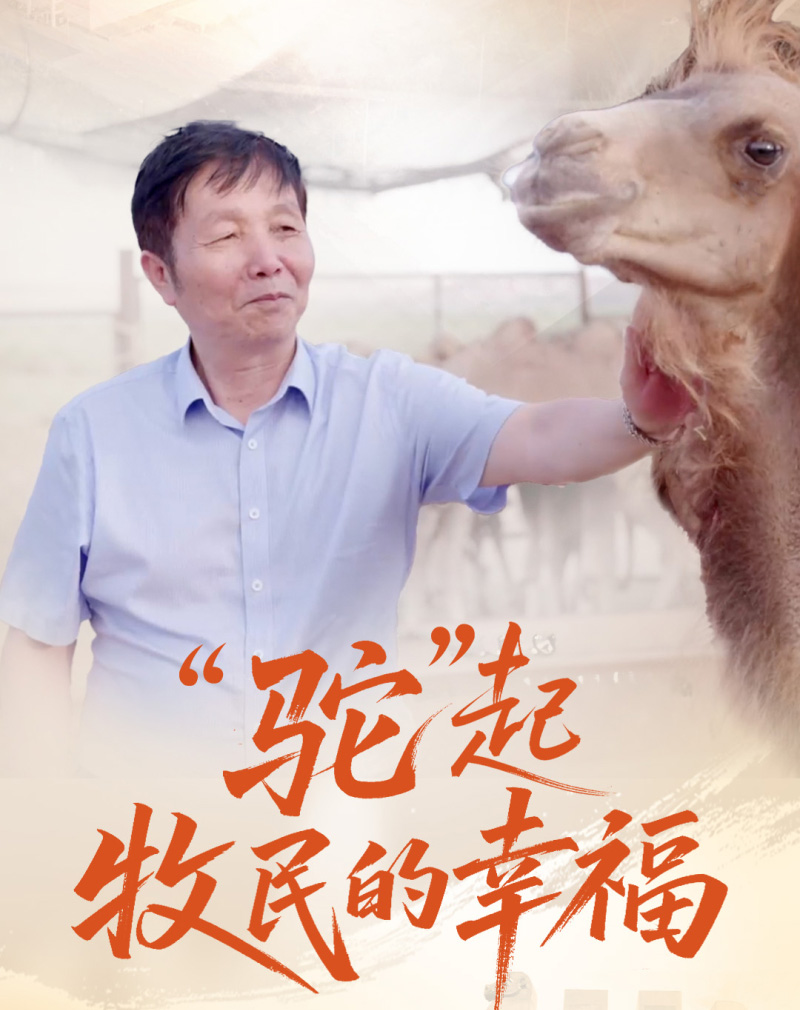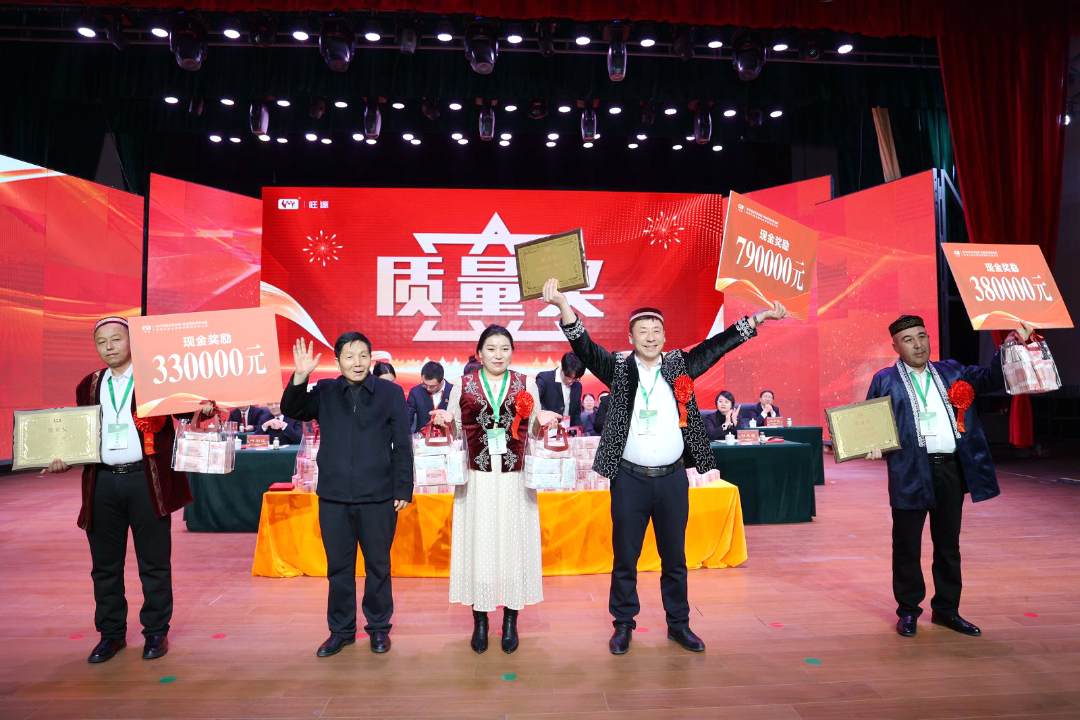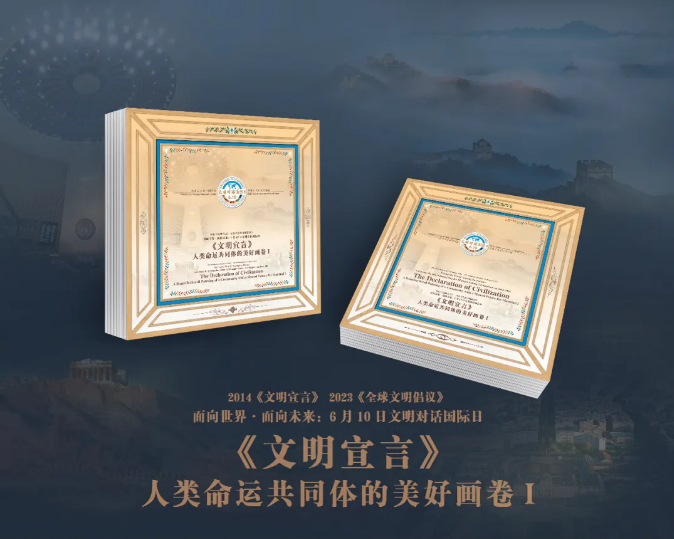2014《文明宣言》 2023《全球文明倡议》
面向世界·面向未来:6 月10 日文明对话国际日
“《文明宣言》——人类命运共同体的美好画卷I”
探索构建文明对话和文明传播的新方式与新载体
主题阐释
(文明传播课题组)
文明,是人类历史长河中沉淀下来的智慧结晶,它以多元的形态在不同地域绽放光芒,推动着人类社会的进步与发展。在当今时代,文明对话与交流互鉴变得愈发重要,成为连接不同国家、不同民族的桥梁。
一、文明对话国际日:促进对话、相互尊重和全球团结
2014年3月27日,中国国家主席习近平在联合国教科文组织总部发表历史性演讲暨“2014《文明宣言》”,提出“文明交流互鉴是推动人类发展进步和世界和平发展的重要动力”,第一次系统地向世界阐释了这一重要理念,为倡导文明对话、提出《全球文明倡议》以及推动构建人类命运共同体奠定了坚实的思想基础,在文明思想史上具有里程碑式的意义。
2019年5月15日,习近平主席在亚洲文明对话大会开幕式上发表主旨演讲,进一步提出文明对话交流的四项原则:坚持相互尊重、平等相待;坚持美人之美、美美与共;坚持开放包容、互学互鉴;坚持与时俱进、创新发展。这四项原则为不同文明之间的交流互鉴提供了明确而具体的指引。
2023年3月15日,习近平出席中国共产党与世界政党高层对话会,发表题为《携手同行现代化之路》的主旨讲话,提出《全球文明倡议》:倡导尊重世界文明多样性,鼓励各国以平等、互鉴、对话、包容的态度对待不同文明;倡导弘扬全人类共同价值,强调和平、发展、公平、正义、民主、自由是各国人民的共同追求;倡导重视文明传承创新,充分挖掘各国历史文化的时代价值;倡导加强国际人文交流合作,促进各国人民相知相亲。
2024年6月7日,第78届联合国大会协商一致通过中国提出的设立文明对话国际日决议,决定将6月10日设立为文明对话国际日。这既是践行习近平主席《全球文明倡议》的成功范例,更表明中国理念和中国方案正日益成为国际共识,为推动全球不同文明间交流对话、促进世界和平发展作出了重要贡献。决议中特别提到:邀请联合国所有会员国、国际和区域组织及其他利益攸关方以适当方式纪念文明对话国际日,包括为此开展教育和提高公众认识活动。
从2014年至2024年,十年间世界局势发生了深刻变化。和平与发展面临诸多挑战,国际信任受到冲击,全球治理遭遇困境,多重危机交织叠加,世界进入新的动荡变革期,人类社会站在了历史的十字路口,面对日益加剧的不稳定和变革。因此,团结、对话与合作的紧迫性显得尤为突出。不同文明之间的对话仍然是消除歧视和偏见、增进相互理解和信任、加强国家间联系以及巩固全球团结的最有效途径。
不同文明之间的对话不仅能深化对人类普遍价值观的认知和理解,还能推动在相互尊重的基础上实现和平共处。不同文明之间的对话是一座桥梁,使各方得以携手应对时代的紧迫挑战,进而促进世界和平、增进人类福祉、推动发展与进步。
文明对话国际日提供了一个契机,提升人们对文明多样性价值的认识,促进对话、相互尊重和全球团结,推动建设一个更加和谐、相互联结的世界。
2025年6月10日迎来“文明对话国际日”设立以来的首个全球庆祝日之际,联合国设立了专题网站对“文明对话国际日”进行宣介,聚焦弘扬全人类共同价值,提升公众对尊重文明多样性的意识,探寻全球性问题的解决之道。作为文明对话国际日的发起国,中国正积极与各方携手,开展文明对话活动,促进世界文明发展进步,推动全球文明交流互鉴,通过文明对话维护世界和平、促进共同发展,为构建人类命运共同体不懈努力。
二、世界遗产:人类文明进步的标志,促进文明交流互鉴、体现全人类共同价值的人类文明标识
2014《文明宣言》提出:“文明因交流而多彩,文明因互鉴而丰富。”2019年亚洲文明对话大会提出:“人是文明交流互鉴最好的载体。”第78 届联合国大会关于文明对话国际日的决议指出,“文明文化在不同的时代和不同的地方具有各种不同的表现形式,在同其他文明文化的交流互鉴中繁荣发展,因此应作为人类经历和愿望的见证得到保护、弘扬和传承,以造福今世后代。”
《世界遗产公约》提出的世界遗产具有“突出的普遍价值”这一重大概念,与全人类共同价值和构建人类命运共同体是同等重要的哲学范畴。世界各国创造的世界遗产,系统地展示了人类文明标识体系的整体成果,让世界得以领略人类自然演进和文明发展的重要成就,以及不同文明的独特魅力和总体效益。人们通过认识和了解这些世界遗产,能够清晰地看到人类文明发展进步的足迹,感受到不同民族、国家和地区创造的文明成果,它们共同构成了人类文明跃迁和升华的重要标识。
近年来,联合国教科文组织将世界遗产视为推动经济发展、增强社会凝聚力、实现和平共处的关键要素,发展世界遗产事业的目标已不再是单纯的文化遗产保护,而是上升到推动文明对话、尊重和保护文明多样性、助力可持续发展的高度。
基于上述认识,为迎接2025 文明对话国际日,首都文明工程基金会和《文明》杂志特别策划在中国北京面向世界推出:“《文明宣言》——人类命运共同体的美好画卷I”即“文明长卷I”。
文明长卷I的核心内容以2014《文明宣言》和2023《全球文明倡议》(阿拉伯文、中文、英文、法文、俄罗斯文、西班牙文六种联合国官方语言)为基础结构,同时,充分发掘、全面展示联合国193 个会员国和2 个观察员国的代表性世界遗产和非物质文化遗产等人类文明经典成果。在世界遗产所秉持的“突出的普遍价值”与非物质文化遗产守护的“见人见物见生活”的理念中,呈现人类大家庭中风格各异却又彼此相通的“全人类共同价值”的美好画卷。它以独特的大美感和壮美感,为不同文明之间的相互理解、尊重、对话、合作搭建起连接的纽带,提供对话交流和合作共赢的认知平台,为推动构建人类命运共同体贡献力量。
三、文明标识:通过文明交流互鉴与文明对话,系统展示人类共同创造的世界文明标识体系,携手共同书写文明对话新篇章
2014《文明宣言》、2019《亚洲文明对话》和2023《全球文明倡议》,充分展示了中国文明观的时代价值和世界意义;2024年6月7日,第78届联合国大会通过中国提出的倡议,设立“文明对话国际日”,这一举措如同开启人类文明发展新形态的一把金钥匙。
在2025年“文明对话国际日”,首都文明工程基金会和《文明》杂志积极践行《全球文明倡议》,发起创立“文明研究院”,开启以“文明交流互鉴、文明对话和全球文明倡议”为核心的文明话语体系构建工作。在坚持全人类共同价值的基础上,努力开辟中国与世界多元文化相融合、加强东西方不同文明交流对话的新路径,探索将中华文化与各国文化相融合、丰富和发展世界文化的传播新方式,打造世界文明展示和文明对话的新平台,开创世界各国人文交流、文明互鉴、民心相通的新局面,弘扬全人类共同价值,推动构建人类命运共同体。
联合国教科文组织基于《保护世界文化与自然遗产公约》所设立的世界遗产项目,是展现人类文明多样性和促进文化间相互理解、相互尊重、对话合作的重要平台。截至2024年,《世界遗产公约》已有196个缔约国,其中168 个缔约国的1223 处遗产(包括952处文化遗产、231处自然遗产、40处混合遗产)被列入《世界遗产名录》。这些由不同民族、不同阶段和不同区域创造的人类文明成果,构成了世界文明标识体系的基础。它们已成为弘扬全人类共同价值、展现人类文明多样性、推动构建人类命运共同体、以及团结世界人民建设美好世界的最重要载体、纽带和平台之一。
The Declaration of Civilization 2014 The Global Civilization Initiative 2023
Facing the World·Facing the Future: Celebrate the International Day for Dialogue Among Civilizations on June 10th
“The Declaration of Civilization, A Beautiful Scroll Painting of a Community with a Shared Future for Mankind I”
Explore New Ways and New Vehicles for Building Dialogue and Communication Among Civilizations
Theme Interpretation
Civilization is the wisdom accumulated over the long course of human history. It flourishes in diverse forms across different regions, driving the progress and development of human society. In today’s world, dialogues and mutual learning among civilizations have become increasingly significant, serving as a bridge connecting different nations and peoples.
I. International Day for Dialogue Among Civilizations: Promoting Dialogue, Mutual Respect and Global Solidarity
On March 27, 2014, Chinese President Xi Jinping delivered a historic speech at the UNESCO headquarters, presenting The Declaration of Civilization 2014. He emphasized that “Civilizations have become richer and more colorful with exchanges and mutual learning. Such exchanges and mutual learning form an important drive for human progress and global peace and development”, offering the first systematic elaboration on this crucial concept. This laid a strong ideological foundation for advocating candid dialogues among civilizations, proposing The Global Civilization Initiative, and promoting the construction of a community of shared human destiny. It is of landmark significance in the history of civilization thought.
On May 15, 2019, President Xi Jinping further expanded on civilizational dialogue principles at the opening of the Conference on Dialogue of Asian Civilizations, outlining four key principles: respect each other and treat each other as equals; uphold the beauty of each civilization and the diversity of civilizations in the world; stay open and inclusive and draw on each other’s strengths; advance with the times and explore new ground in development. These principles provide clear and concrete guidance for fostering exchanges and mutual learning between different civilizations.
On March 15, 2023, President Xi Jinping delivered a keynote address titled Join Hands on the Path Towards Modernization at the Communist Party of China (CPC) in Dialogue with World Political Parties High-level Meeting. He proposed The Global Civilization Initiative and advocated for the following principles. First, he emphasized the respect for the diversity of civilizations, urging countries to uphold the principles of equality, mutual learning, dialogue, and inclusiveness among civilizations. Second, he called for the recognition of the common values of humanity. Peace, development, equity, justice, democracy, and freedom are universal aspirations shared by all peoples. Third, he highlighted the importance of preserving and innovating civilizations. Countries should harness the relevance of their histories and cultures in the present times. Lastly, he advocated for robust international people-to-people exchanges and cooperation, calling for efforts to promote mutual understanding and strengthen friendships among peoples worldwide.
On June 7, 2024, the 78th session of the United Nations General Assembly unanimously adopted China’s proposal to establish the International Day for Dialogue Among Civilizations, designating June 10 as a day to celebrate and promote this dialogue. This decision not only serves as a successful example of implementing President Xi’s Global Civilization Initiative but also reflects the growing international consensus around China’s ideas and proposals. It underscores China’s contribution to fostering global exchanges, dialogue, and peace among diverse civilizations. The resolution specifically mentions United Nations member states, international and regional organizations, and other relevant stakeholders to commemorate the International Day through educational and awareness-raising activities.
From 2014 to 2024, the world has undergone profound changes. Peace and development face numerous challenges, international trust has been shaken, global governance is in trouble crossroads, and multiple crises have intertwined, marking a new era of turmoil and transformation. Humanity finds itself at a historical crossroads, facing increasing instability and transformation. The urgent need for solidarity, dialogue, and cooperation has never been more evident. Dialogue among civilizations remains the most effective way to eliminate discrimination and prejudice, foster mutual understanding and trust, strengthen relationships among nations, and reinforce global solidarity.
Dialogue among civilizations not only fosters awareness and appreciation of the universal values shared by humankind but also promotes peaceful coexistence based on mutual respect. It serves as a bridge to find common ground in addressing the pressing challenges of our time, ultimately contributing to world peace, human welfare, development, and progress.
The International Day for Dialogue Among Civilizations provides an opportunity to raise awareness of the value of the diversity of civilizations and promoting dialogue, mutual respect and global solidarity, fostering a more harmonious and interconnected world.
June 10, 2025 marks the first global celebration of the International Day for Dialogue Among Civilizations, the United Nations has launched a dedicated website to promote the significance of this day, focusing on advancing shared human values, raising public awareness of the importance of respecting civilizational diversity, and exploring solutions to global challenges. As the initiator of the International Day, China is actively collaborating with all parties to carry out dialogue among civilizations, promote the development of world civilizations, foster global exchanges and mutual learning, and work tirelessly to maintain world peace and advance common development, contributing to the construction of a community of shared human destiny.
II. World Heritage: A Symbol of Human Civilization's Progress and an Identification that Promotes the Exchanges and Mutual Learning of Civilizations and Reflects the Common Values of Humanity
The Declaration of Civilization 2014 proposed that “Civilizations have become richer and more colorful with exchanges and mutual learning.” The Conference on Asian Civilizations Dialogue in 2019, emphasized “People are the best bridge for exchanges and mutual learning among civilizations.” The resolution of the 78th session of the UN General Assembly on the International Day for Dialogue Among Civilizations noted, “civilizations and cultures take diverse forms across time and space and flourish in contact with others and therefore shall be preserved, enhanced and handed on for the benefit of current and future generations as a record of human experience and aspirations.”
The concept of “outstanding universal value”, put forward by the World Heritage Convention, is of equal importance to the shared common values of humanity and the building of a global community of shared future. The world heritage created by various countries systematically showcases the collective achievements of humanity’s civilizational symbols system. It allows the world to appreciate the major accomplishments of human natural evolution and civilizational development, as well as the unique charm and overall benefits of different civilizations. Through recognizing and understanding these world heritage sites, people can clearly trace the footprints of human civilization’s progress and development, appreciating the civilizational achievements created by different nations, peoples, and regions. Together, they constitute important symbols of the leap and sublimation of human civilization.
In recent years, UNESCO has recognized world heritage as a key element in driving economic development, enhancing social cohesion, and achieving peaceful coexistence. The goal of world heritage development has moved beyond cultural preservation, but has risen to the height of promoting dialogue among civilizations, respecting and protecting the diversity of civilizations, and contributing to sustainable development.
Based on the above understanding, in anticipation of the 2025 International Day for Dialogue Among Civilizations, the Capital Civilization Development Foundation and Civilization Magazine have specially planned the global launch in Beijing, China, of the “The Declaration of Civilization, A Beautiful Scroll Painting of a Community with a Shared Future for Mankind I” namely the “Civilization Scroll I”.
The core content of the “Civilization Scroll I” is structured around The Declaration of Civilization 2014 and The Global Civilization Initiative 2023 (in Arabic, Chinese, English, French, Russian, and Spanish the six official UN languages). It also fully explores and showcases the representative world heritage and intangible cultural heritage of the 193 UN member states and 2 non-member states countries, highlighting the classic achievements of human civilization. In the spirit of the “outstanding universal value” upheld by world heritage and the “reflect people, practices, and everyday life” philosophy guarded by intangible cultural heritage, it presents a beautiful blueprint of “common values of humanity” within the human family, showcasing diverse yet interconnected civilizations. With its unique grandeur and magnificence, it builds a bridge for mutual understanding, respect, dialogue, and cooperation between civilizations, offering a platform for communication, exchange, and win-win cooperation, contributing to the building a global community of shared future.
III. Civilizational Symbols: Through the Exchanges and Mutual Learning of Civilizations and Dialogue among Civilizations, Systematically Showcasing the World Civilizational Symbols System, and Jointly Writing a New Chapter for Dialogue among Civilizations
The Declaration of Civilization 2014, The Conference on Asian Civilizations Dialogue 2019, and The Global Civilization Initiative 2023 have fully demonstrated the contemporary relevance and global significance of China’s perspective on civilization. On June 7, 2024, the 78th session of the UN General Assembly established the International Day for Dialogue Among Civilizations, proposed by China. This initiative serves as a key that unlocks a new chapter in the development of human civilization.
As we approach the International Day for Dialogue Among Civilizations in 2025, the Capital Civilization Development Foundation and Civilization Magazine actively practice The Global Civilization Initiative by initiating the establishment of the Institute of Civilization Studies. This marks the beginning of efforts to build a new discourse system centered on civilizational exchanges and mutual learning, civilizational dialogue, and the Global Civilization Initiative. Based on the common values of humanity, these efforts aim to explore new pathways for integrating Chinese culture with the diverse cultures of the world, enhancing dialogue between Eastern and Western civilizations, and fostering new approaches to spread world culture. The goal is to create new platforms for showcasing world civilizations and dialogue among civilizations, ushering in a new era of people to- people exchanges, mutual learning between civilizations, and shared human understanding. This will promote the global recognition of common human values and contribute to the building a global community of shared future.
The UNESCO World Heritage program, established under the Convention for the Protection of World Cultural and Natural Heritage, serves as a vital platform for celebrating the rich diversity of human civilizations, while fostering mutual understanding, respect, dialogue, and cooperation among cultures. As of 2024, 196 States Parties have ratified the World Heritage Convention, and 1223 properties (including 952 cultural, 231 natural, and 40 mixed) from 168 States Parties have been included on the World Heritage List. These remarkable achievements of human civilization, shaped by diverse peoples across different eras and regions, form the cornerstone of the global system of civilizational symbols. They have become essential vessels, bridges, and platforms for promoting the shared values of humanity, celebrating the diversity of civilizations, advancing the creation of a community of shared human destiny, and uniting peoples across the globe in the pursuit of a better world.
 关注公众号:国声
关注公众号:国声

由陈钢粮创立的旺源集团,以骆驼产业为支点,通过科技创新、精准扶贫和骆驼全产业链多元化发展,不仅让新疆驼奶走向了世界,更让当地越来越多牧民走上了致富路。
2026-01-21 14:01:32

作为新疆骆驼产业发展龙头企业和“全国脱贫攻坚先进集体”,旺源集团近年来大力推行“零成本投入、零风险经营、零距离就业”“三零模式”,让1万多牧民走上了致富路。
2026-01-21 14:01:22

“《文明宣言》——人类命运共同体的美好画卷I”为国际社会开展文明对话国际日活动提供了一个连接人类文明发展历史的载体和纽带,通过展示中国人的全球文明观,启动人类文明圣火传递新时代。
2025-06-26 16:06:26